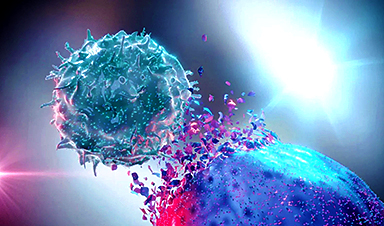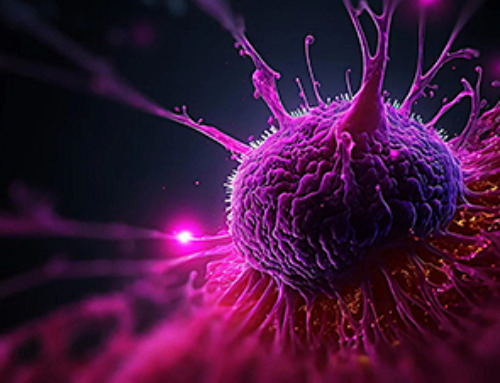The bidirectional research examines both laboratory findings and human clinical trial data, revealing that the medicinal use of white button mushrooms reduces the type of cells that suppress the immune system and facilitate the spread of prostate cancer.
Researchers at City of Hope, one of the largest and most advanced cancer research and treatment organizations in the United States—ranked among the nation's top five cancer centers by U.S. News & World Report and a national leader in providing cancer patients with best-in-class, integrated supportive care programs—have now uncovered why taking an investigational white button mushroom supplement shows promise in slowing and even preventing the spread of prostate cancer. This discovery comes from a phase 2 clinical trial exploring the concept of "food as medicine."
Looking at preclinical and preliminary human data, the City of Hope scientists found that taking white button mushroom pills reduces a class of immune cells called myeloid-derived suppressor cells (MDSCs), which has been linked to cancer development and spread.
Exploring the Potential of Plant-Derived Therapies
"City of Hope researchers are investigating foods like white button mushroom, grape seed extract, pomegranate, blueberries, and ripe purple berries called Jamun for their potential medicinal properties. We're finding that plant-derived substances may one day be used to support traditional cancer treatment and prevention practices," said Shiuan Chen, Ph.D., the Lester M. and Irene C. Finkelstein Chair in Biology, professor and chair of the Department of Cancer Biology and Molecular Medicine at Beckman Research Institute of City of Hope, and senior author of the new Clinical and Translational Medicine study.
"This study suggests that 'food as medicine' treatments could eventually become normal, evidence-based cancer care that is recommended for everyone touched by cancer."

The use of naturally derived therapies for cancer treatment — called integrative oncology — is growing in popularity as people become more health-conscious and aware of the benefits of whole-person cancer care. Supported by a $100 million gift from Panda Express Co-CEOs Andrew and Peggy Cherng, City of Hope's Cherng Family Center for Integrative Oncology is accelerating the research, education, and clinical care needed to ensure cancer patients and their doctors have access to safe, proven approaches.
Translating Lab Discoveries Into Clinical Care
At City of Hope, lab researchers work closely with physicians, allowing for streamlined bidirectional research so that laboratory findings can be taken to patients and what is observed in patients can be taken and put back under the microscope for the development of expedited, more effective cancer treatments.
In mouse models, researchers found that administration of white button mushroom extract significantly delayed the growth of tumors and extended the survival of mice. It also improved T cell immune response through the reduction of MDSC levels in animal models, meaning it improved the immune system's ability to kill cancer.
The researchers profiled blood draws from some of the men participating in City of Hope's phase 2 clinical trial. The men were under active surveillance as they took white button mushroom supplements. Focusing on eight participants' samples before and after three months of white button mushroom treatment, the scientists found that there were less tumor-creating MDSCs and more anti-tumor T and natural killer cells, suggesting white button mushroom rebuilds anti-cancer immune defense and slows cancer growth.
"Our study emphasizes the importance of seeking professional guidance to ensure safety and to avoid self-prescribing supplements without consulting a health care provider," said Xiaoqiang Wang, M.D., Ph.D., City of Hope staff scientist and first author of the study. "Some people are buying mushroom products or extract online, but these are not FDA-approved. While our research has promising early results, the study is ongoing. That said, it couldn't hurt if people wanted to add more fresh white button mushrooms to their everyday diet."
People interested in joining the National Cancer Institute-funded phase 2 clinical trial should visit https://www.cityofhope.org/research/clinical-trials. City of Hope researchers are now focusing on whether the reduction in MDSCs is associated with improved clinical outcomes in patients with prostate cancer.
Reference: "Reduction of myeloid-derived suppressor cells in prostate cancer murine models and patients following white button mushroom treatment" by Xiaoqiang Wang, Shoubao Ma, Przemyslaw Twardowski, Clayton Lau, Yin S. Chan, Kelly Wong, Sai Xiao, Jinhui Wang, Xiwei Wu, Paul Frankel, Timothy G. Wilson, Timothy W Synold, Cary Presant, Tanya Dorff, Jianhua Yu, David Sadava and Shiuan Chen, 10 October 2024, Clinical and Translational Medicine.
DOI: 10.1002/ctm2.70048
The study was supported by a National Institutes of Health grant for City of Hope Core Facilities (P30CA033572), a National Cancer Institute grant to Dr. Chen (CA227230) and a pilot study grant from the Panda Charitable Foundation.
News
All blue-eyed people have this one thing in common
All Blue-Eyed People Have This One Thing In Common Blue Eyes Aren’t Random—Research Traces Them Back to One Prehistoric Human It sounds like a myth at first — something you’d hear in a folklore [...]
Scientists reveal how exercise protects the brain from Alzheimer’s
Researchers at UC San Francisco have identified a biological process that may explain why exercise sharpens thinking and memory. Their findings suggest that physical activity strengthens the brain's built in defense system, helping protect [...]
NanoMedical Brain/Cloud Interface – Explorations and Implications. A new book from Frank Boehm
New book from Frank Boehm, NanoappsMedical Inc Founder: This book explores the future hypothetical possibility that the cerebral cortex of the human brain might be seamlessly, safely, and securely connected with the Cloud via [...]
Deadly Pancreatic Cancer Found To “Wire Itself” Into the Body’s Nerves
A newly discovered link between pancreatic cancer and neural signaling reveals a promising drug target that slows tumor growth by blocking glutamate uptake. Pancreatic cancer is among the most deadly cancers, and scientists are [...]
This Simple Brain Exercise May Protect Against Dementia for 20 Years
A long-running study following thousands of older adults suggests that a relatively brief period of targeted brain training may have effects that last decades. Starting in the late 1990s, close to 3,000 older adults [...]
Scientists Crack a 50-Year Tissue Mystery With Major Cancer Implications
Researchers have resolved a 50-year-old scientific mystery by identifying the molecular mechanism that allows tissues to regenerate after severe damage. The discovery could help guide future treatments aimed at reducing the risk of cancer [...]
This New Blood Test Can Detect Cancer Before Tumors Appear
A new CRISPR-powered light sensor can detect the faintest whispers of cancer in a single drop of blood. Scientists have created an advanced light-based sensor capable of identifying extremely small amounts of cancer biomarkers [...]
Blindness Breakthrough? This Snail Regrows Eyes in 30 Days
A snail that regrows its eyes may hold the genetic clues to restoring human sight. Human eyes are intricate organs that cannot regrow once damaged. Surprisingly, they share key structural features with the eyes [...]
This Is Why the Same Virus Hits People So Differently
Scientists have mapped how genetics and life experiences leave lasting epigenetic marks on immune cells. The discovery helps explain why people respond so differently to the same infections and could lead to more personalized [...]
Rejuvenating neurons restores learning and memory in mice
EPFL scientists report that briefly switching on three “reprogramming” genes in a small set of memory-trace neurons restored memory in aged mice and in mouse models of Alzheimer’s disease to level of healthy young [...]
New book from Nanoappsmedical Inc. – Global Health Care Equivalency
A new book by Frank Boehm, NanoappsMedical Inc. Founder. This groundbreaking volume explores the vision of a Global Health Care Equivalency (GHCE) system powered by artificial intelligence and quantum computing technologies, operating on secure [...]
New Molecule Blocks Deadliest Brain Cancer at Its Genetic Root
Researchers have identified a molecule that disrupts a critical gene in glioblastoma. Scientists at the UVA Comprehensive Cancer Center say they have found a small molecule that can shut down a gene tied to glioblastoma, a [...]
Scientists Finally Solve a 30-Year-Old Cancer Mystery Hidden in Rye Pollen
Nearly 30 years after rye pollen molecules were shown to slow tumor growth in animals, scientists have finally determined their exact three-dimensional structures. Nearly 30 years ago, researchers noticed something surprising in rye pollen: [...]
How lipid nanoparticles carrying vaccines release their cargo
A study from FAU has shown that lipid nanoparticles restructure their membrane significantly after being absorbed into a cell and ending up in an acidic environment. Vaccines and other medicines are often packed in [...]
New book from NanoappsMedical Inc – Molecular Manufacturing: The Future of Nanomedicine
This book explores the revolutionary potential of atomically precise manufacturing technologies to transform global healthcare, as well as practically every other sector across society. This forward-thinking volume examines how envisaged Factory@Home systems might enable the cost-effective [...]
A Virus Designed in the Lab Could Help Defeat Antibiotic Resistance
Scientists can now design bacteria-killing viruses from DNA, opening a faster path to fighting superbugs. Bacteriophages have been used as treatments for bacterial infections for more than a century. Interest in these viruses is rising [...]





















